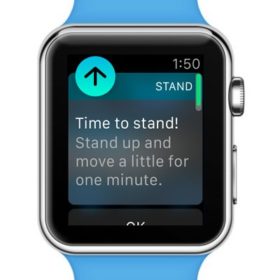
Have you ever counted the number of hours that you spend in front of a computer in a simple sitting position per week?
If you haven’t, take a moment to think about it; take an average working day of 8h. At the end of a working, day do you feel that your body has aches or pains? Do you think, for example, that an app on a smart watch, counting the number of hours sitting and reminding you to stand-up and move would be helpful for you?
As students have been forced in front of devices in order to attend online courses, well-being is certainly part of the major Consumer Behavior factors to be understood within the COVID-context. Business School Lausanne had the chance to organize a workshop on well-being, in the context of e-learning, with M. Luis Marcos from Bayer Consumer Health at the end of 2020.
Many studies have shown how deeply COVID has affected us all, increasing home office activities and switching us over to online work. We now spend long working hours facing any kind of technical interface mostly in poor sitting positions. Consequences are multiple, with the first signals coming from our body and mind.
Because of this, professionals started researching the well-being state of mind and its effects, faced by workers on a daily basis. Within the Consumer Behavior Course, students and Dr. Alexandra Broillet organized 15 minutes of well-being, either at the beginning of the course or in the middle of it. With an online course duration of 4.5 hours, the well-being break is always a very welcomed. During the workshop with M. Luis Marcos, students gained some insights about what Bayer is doing in this field for their employees.
Mr. Luis Marcos from Bayer Consumer Health, Digital Transformation & Global eCommerce Activation Lead, explained the different initiatives organized by his company as well as within the European Digital Society (EDS), where he serves as Vice-President Board Member and Ambassador of Geneva and Western-Switzerland. Some of the initiatives cover:
- 1. Future/Immersive Technology for Health, Business and Education
- 2. Building Human-First, Psychologically Safe Workplaces (mental health, in the workplace & beyond)
- 3. Navigating Uncertainty & Complexity, just to name a few.
After having shared those practical insights, students were asked to think about a well-being offer that could be easily understood by any e-learner. The challenge amongst other things, was to understand what solutions already exist and what others were still missing today; offering clear Consumer Behavior solutions that can be directly integrated into an e-learning offer.
The outcome was astonishing, as it reflected students’ needs, like any other home office working behavior.
For instance, student Luciano suggested that it might be interesting to integrate physical movements at the beginning of a course and finish with some more meditation exercises.
Student Em, suggested an off-line activity brochure for students and student Hedvig, a pop-up solution that reminds someone to change their working position by simply taking a break from online activities. Consequently, we found that well-being solutions can be easily integrated into daily home office activities, creating a positive and regular well-being balance, both physically and mentally.
This guided us to ask ourselves: how does a post-COVID “new normal” look like?
What will be the next criteria to justify, in a global organization, the need for physical and social interaction in business, for instance:
- What will justify a business trip?
- What will justify a physical business meeting vs. online meeting?
Consequently, we must ask ourselves:
What is the future role of Well-Being facing online and offline working behavior?
Based on our lessons learned, we think that any well-being solutions should be automatically integrated in the e-learning experience for students.

BSL Professor

Bayer Consumer Health
